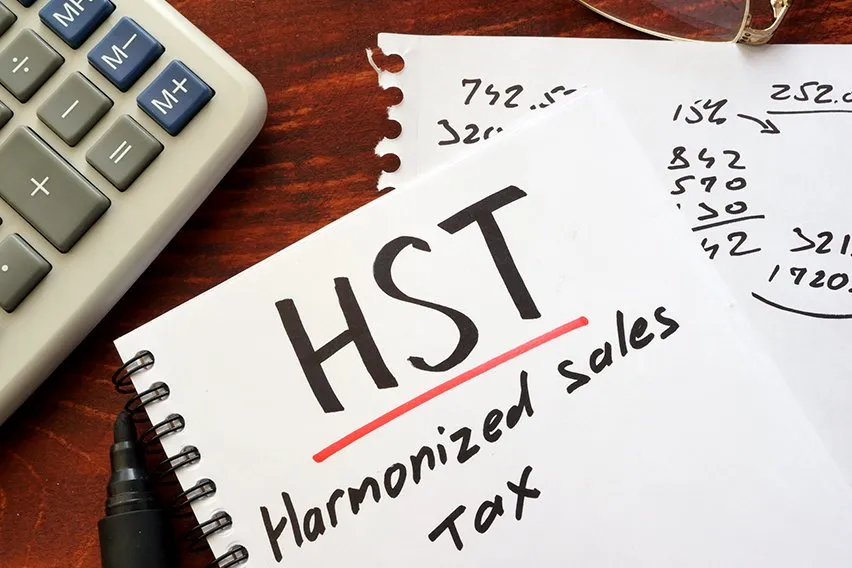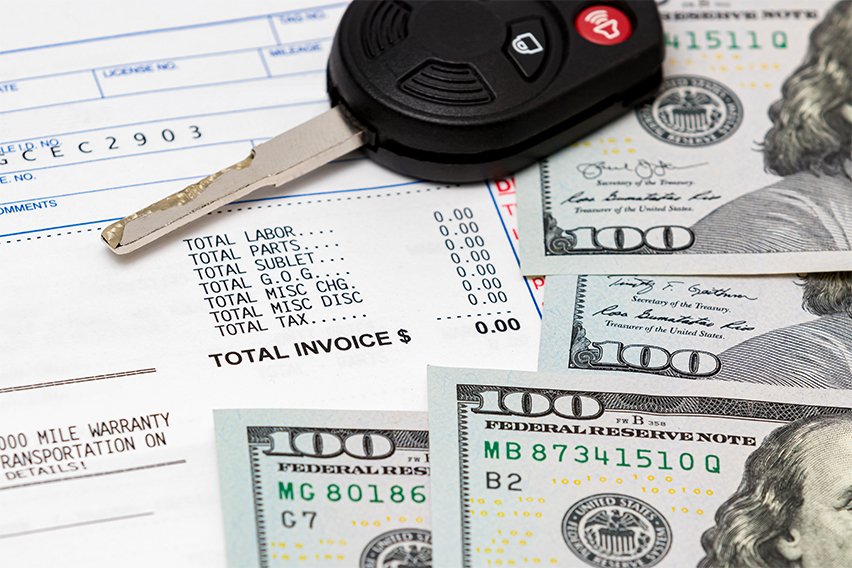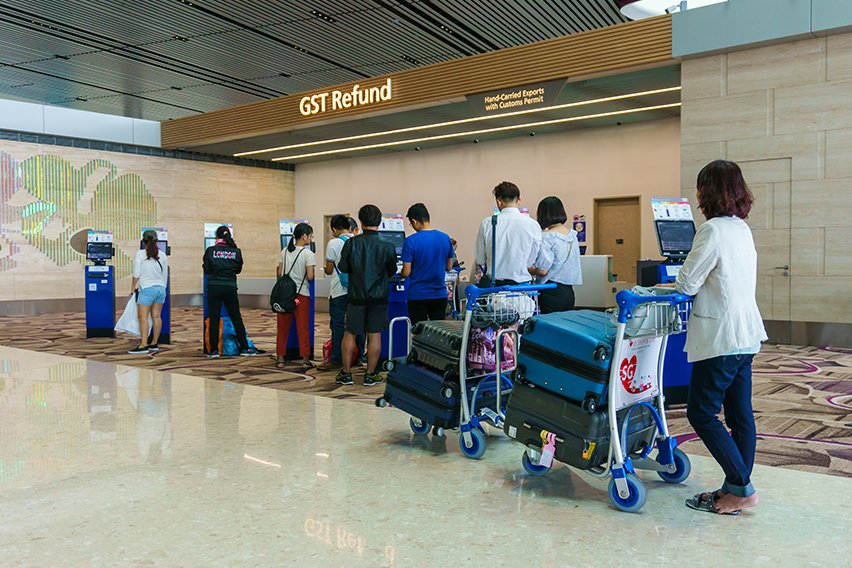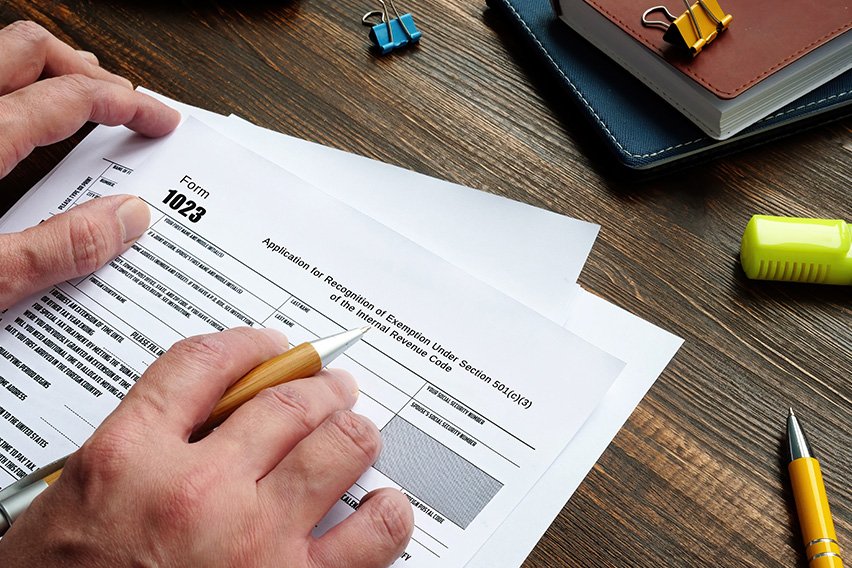What Is HST (Harmonized Sales Tax)?

One of the primary parts of doing business is understanding taxes. One form of taxation that nearly all businesses will encounter is the sales tax. Canada has a specific form of sales tax called the Harmonized Sales Tax, or HST for short. We’re covering everything you need to know about Harmonized Sales Tax in this article.
Here’s What We’ll Cover:
How Does the HST Apply to Canadian Businesses?
What is Harmonized Sales Tax?
Canadian Harmonized Sales Tax (HST) is a goods and services tax present in certain provinces of Canada. The HST is a combination of the General Sales Tax (GST) and the Provincial Sales Tax (PST). It occurs in provinces that opted to combine the PST and the GST when the tax was first introduced. While the federal government wanted to instate the HST as a federal sales tax, it caused a stir in some provinces. As such, it’s not every province, and it doesn’t affect every business.
What Provinces Does the HST Occur In?
If you’re a business in Canada, it’s important to know what provinces the HST occurs in. We’ve got all of the provinces listed below, as well as the Harmonized Sales Tax rate in each.
Provinces with HST
- New Brunswick, 15% HST
- Newfoundland / Labrador, 15% HST
- Nova Scotia, 15% HST
- Ontario, 13% HST
- Prince Edward Island, 15%

Provinces without HST
- Alberta
- British Columbia
- Manitoba
- Northwest Territories
- Nunavut
- Quebec
- Saskatchewan
- Yukon
In any of the provinces that are listed with HST, they must collect the tax and remit it to the Canada Revenue Agency. Afterwards, the Canada Revenue Agency will return the appropriate amount to each province. This means that rather than pay the province and the federal government, businesses only pay the federal government. The government then handles the PST on behalf of the business.
The amount of HST depends on the province you’re in, as stated above. When HST was proposed, each participating province established their Provincial Sales Taxes percentage. They then combined it with the GST. If you’re in a province that doesn’t participate in HST, then the Canada Revenue Agency only collects GST from your business.
How Does the HST Apply to Canadian Businesses?
Canadian businesses in provinces that collect HST are responsible for charging and collecting it. They then are required to remit the HST collected to the Canada Revenue Agency. This only has to happen in the Canadian provinces that established HST with the Canadian government.
Businesses in provinces that collect HST also need to know what items and services are exempt. In this case, HST would not need to be collected or remitted to the Canada Revenue Agency.
Small-Supplier Status
In provinces that collect HST, some businesses have small-supplier status. To meet small-supplier status, businesses must generate less than $30,000 in revenue annually. An increase in supply would increase revenue, and then the business would be required to register for HST.
Advantages of Registering for HST
Even if your small business isn’t required to register for HST, it does have some advantages. You should take these advantages into consideration.
- Voluntarily registering for HST allows your business to claim input tax credits. An input tax credit can help you reduce the amount of taxes paid at the end of the year.
- Being in a province that collects HST simplifies your accounting costs. In other provinces, tax has to be collected on both the GST and PST. This makes it more labor intensive, and time consuming.
- Costs can be lowered for consumers, as one unified tax is being collected rather than two.

Selling Outside of Your Province
The HST becomes a bit complicated when you sell goods outside of your province. This only applies to national sales, though. For example, if you are located in Ontario and you sell a product online to a customer in New Brunswick the taxes can be hard to sort through. In Ontario, you’ll collect 13 percent. Meanwhile, your customer in New Brunswick will be charged 15 percent. This is only further complicated when doing business with customers in provinces that don’t participate in HST.
Thankfully there are great software options for accounting services that can handle this for you. If you do business with other provinces frequently, accounting software can be immensely helpful.
International Sales
If you’re running an e-commerce business and sell goods to customers outside of the country, you’re in luck. Your business will not have to collect GST, HST, or PST on these transactions. This is so long as the shipping address or destination is outside of Canada.
Key Takeaways
If you’re running a business in the 5 provinces that collect HST, your responsibilities are streamlined. You only have to collect one sales tax rather than two. The brunt of the work is taken care of for you by the Canada Revenue Agency. HST is pretty advantageous for most businesses. If you’re looking for more information like this, check out our resource hub. We cover a range of topics that can help your small business!
RELATED ARTICLES

 What Is Bill of Materials (BOM) & How to Create One?
What Is Bill of Materials (BOM) & How to Create One? What is SG&A (Selling, General & Administrative Expense)?
What is SG&A (Selling, General & Administrative Expense)? What Is GST Refund & How to Get It
What Is GST Refund & How to Get It Small Business Deduction: Understand What You Should Know
Small Business Deduction: Understand What You Should Know Tax Exemption Requirements for Organizations
Tax Exemption Requirements for Organizations How Much Cash Can You Deposit?
How Much Cash Can You Deposit?